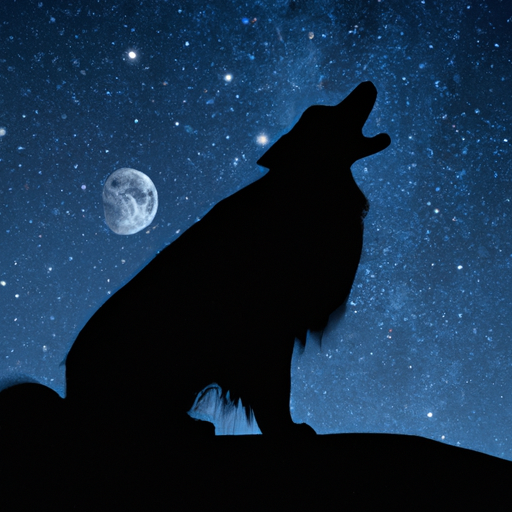You are a dedicated caregiver, always looking out for your beloved four-legged companions. You notice they have a peculiar habit – they tend to howl at night. Why is that? The reasons are numerous and can range from their ancestral instincts to medical issues. Let’s delve deeper into this fascinating topic and uncover the truth behind this mysterious canine behavior.
H2: The Ancestral Connection
Think about a wolf howling in the forest at night. It’s a haunting and beautiful sound, isn’t it? This behavior is deeply rooted in the ancestry of our domestic dogs. Before they were our loyal companions, dogs were wild creatures, related to wolves.
- Communication: Wolves use howling as a form of long-distance communication. It’s a way to keep the pack connected, especially during night when visibility is low.
- Territorial Claims: Wolves also howl to mark their territory and warn off potential intruders.
While your domestic dog doesn’t need to communicate over long distances or stake their territory, the instinct is still there. The quiet of the night might trigger these ancestral instincts in your dog, leading them to howl.
H2: Reaction to Sounds
Your dog has a much more sensitive hearing than you do. The quiet of the night can make certain sounds more noticeable to your dog.
| Sounds | Possible Effect on Dogs |
|---|---|
| Sirens | The high-pitched sound can trigger a howling response. |
| Other dogs howling | Dogs often join in when they hear other dogs howling. |
| High-pitched music or instruments | Some dogs might howl in response to certain types of music or instruments. |
So, the next time your dog howls at night, try to listen carefully. Maybe they are reacting to a sound you can’t hear.
H2: A Cry for Attention
At times, your dog might be howling because they want your attention. Maybe you’ve been busy all day and they’ve felt neglected, or maybe they’re just bored. If this is the case, consider:
-
Increasing your dog’s physical activity: More walks or playtime can help wear out your dog and keep them occupied.
-
Providing mental stimulation: Toys, puzzles, and training can keep your dog’s mind busy.
H2: Medical Issues
Sometimes, howling can be a sign of pain or discomfort. If your dog’s howling is accompanied by other signs of distress like restlessness, eating less, or changes in behavior, it’s time to visit the vet.
H2: Separation Anxiety
Dogs are social animals, and being left alone can cause them stress. If your dog howls when you’re not around, it might be a sign of separation anxiety. You can consult a professional dog behaviorist for help in managing this condition.
FAQs
1. Why does my dog howl more than others?
Different breeds have different tendencies to howl. For example, Siberian Huskies and Alaskan Malamutes are known for their howling.
2. Is howling a sign of distress?
Not always, but if it’s accompanied by other signs of distress, it’s advisable to consult a vet.
3. Can I train my dog to stop howling at night?
Yes, with patience and consistency, you can train your dog to stop howling at night.
4. Is howling harmful to my dog’s health?
Not generally, but excessive howling could be a sign of an underlying issue that needs to be addressed.
Your dog’s howling might be a nuisance at times, especially during the night. But by understanding the reasons behind it, and by providing the right care and attention, you can manage this behavior effectively.



